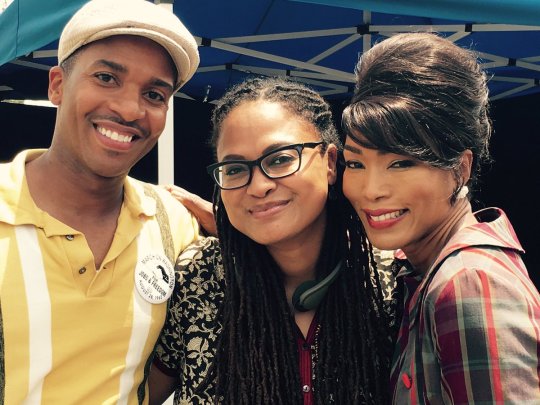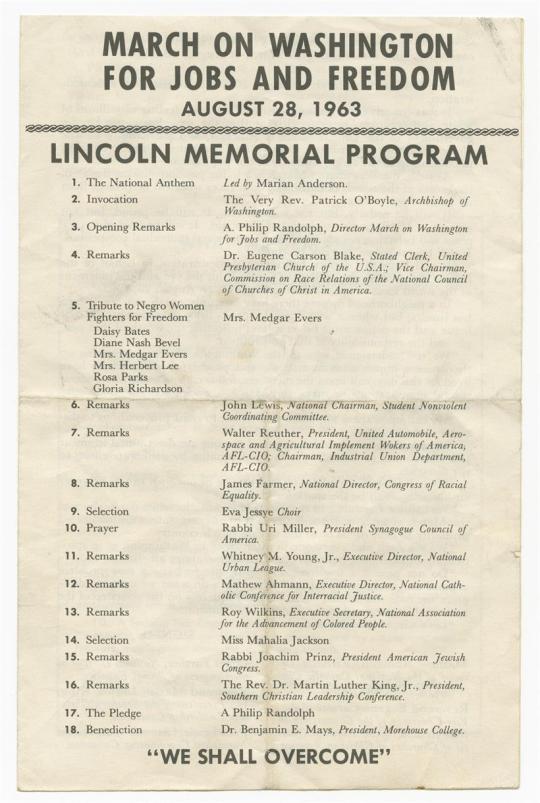#august 28th
August 28th…Roxie Roker

On This Day in Herstory, August 28th 1929, Roxie Roker, an actress who portrayed Helen Willis on The Jeffersons, half of the first interracial couple regularly shown on TV, and mother of Lenny Kravitz and grandmother of Zoë Kravitz, was born in Miami, Florida.
Roxie Albertha Roker, was the daughter of Bessie Mitchell, a domestic worker, and Albert Roker, an immigrant from the Bahamas and a porter. She graduated from Howard University, where she was a member of Alpha Kappa Alpha sorority, the first sorority founded by Black college women. She later moved to Brooklyn, New York to pursue a career as an actress. In 1962, she married television producer Sy Kravitz, a white Jewish man. Together the couple had a son, singer-songwriter and actor Lenny Kravitz; the pair divorced in 1985.
Roxie found her start in professional acting with the Negro Ensemble Company. During her time with the company, she established herself as a successful stage actress. She won an Obie Award in 1974 and was also nominated for a Tony Award. She had supporting and guest starring roles on many TV shows from the 1970s to the 1990s; these shows included Punky Brewster, Hangin’ with Mr. Cooper, A Different World, Murder, She Wrote, The Love Boat, and many others. She had roles in the television miniseries Roots and in the movie Claudine. However, she is best known for her portrayal of Helen Willis on The Jeffersons.
The Jeffersons first premiered on CBS in 1975. Straight away the show received a lot of attention because it portrayed a Black family that was upwardly mobile, additionally, the show featured one TVs first interracial couples, Tom and Helen Willis, the neighbors of the Jefferson family. Despite the show being a comedy, it also exemplified some of the bigotry and racism faced by interracial couples.
In addition to her acting, Roxie was a children’s advocate; and she was cited by Los Angeles for her community work. Roxie Roker died in Los Angeles, California, on December 2nd, 1995, as a result of breast cancer, she was 66 years old.
Filmmaker Ava DuVernay created the exclusive film August 28: A Day in the Life of A People. The film revolves around six historic events within the African American experience that changed the world, all occurring on August 28th. Through poetry, narrative, and visual elements, audiences are teleported to these moments—some painful, some hopeful.

Photo: Filmmaker Ava DuVernay (center) with actor André Holland and actress Angela Bassett on set for the film “August 28th: A Day in the Life of a People.”
Abolition of Slavery in the British Empire (1833)

Photo: Gift from the Liljenquist Family Collection, Collection of the Smithsonian National Museum of African American History and Culture.
The Slavery Abolition Act was passed by the British Parliament in 1833, effectively freeing 800,000 enslaved people in the British Caribbean, South Africa, and Canada. At the time, most enslaved Africans in the United States were still subjected to the laws of the American government which had not abolished slavery. Still, the passage of the act increased pressure for other colonial powers to outlaw slavery and laid the foundation for the Emancipation Proclamation which would come to pass 30 years later.
The Beginning of Motown (1961)
With an $800 loan from his family, former boxer and record store owner, Barry Gordy Jr. formed Motown Records. The iconic record company that provided a soundtrack to pivotal decades in U.S. history, and produced enduring Black musical acts such as Smokey Robinson,The Jackson 5,Diana Ross,Marvin Gaye,The Temptations,The Commodores,The Four Tops, and Stevie Wonder. On August 28, 1961, Motown released its first hit, “Please Mr. Postman” by the Marvellettes.
The Murder of Emmett Till (1955)
While visiting relatives in Money, Mississippi during August 1955, 14-year-old Emmett Till was murdered at the hands of two white men. Till’s offense was flirting with a white woman, an act that violated the social codes that controlled contact between Black men and white women in the South. Till’s body was brutalized beyond recognition, and his mother, Mamie Till, was adamant that the world know what happened to her son. Till’s murder exposed the inhumanity of racism and helped ignite the Civil Rights Movement.
March on Washington (1963)

Photo: Gift of Samuel Y. Edgerton, Collection of the Smithsonian National Museum of African American History and Culture.
TheMarch on Washington for Jobs and Freedomwas the largest demonstration the Nation’s Capital had ever seen and was organized by Bayard Rustin, an openly gay civil rights activist. The gathering of 250,000 people, all from diverse backgrounds, was the result of efforts put forth by Civil Rights leaders Roy Wilkins,Whitney Young,John Lewis, A. Philip Randolph, and Dr. Martin Luther King Jr., among others. The march highlighted the centennial of the Emancipation Proclamation which reminded Americans of the nation’s long pursuit to fulfill its founding principles of liberty and equality for all. The March ended with Dr. Martin Luther King delivering his ‘I Have A Dream’ speech at the Lincoln Memorial.
Hurricane Katrina (2005)
In late August 2005, Hurricane Katrinastruck the United States Gulf Coast, making landfall in Alabama, Mississippi, and Louisiana. The impact of Hurricane Katrina was catastrophic. In New Orleans, failed levee systems gave way to an enormous quantity of water that flooded the city in a matter of hours. In total, Katrina claimed 2,000 lives and caused about $100 billion in damage. The devastation was captured on both national and international newscasts and many Americans believed that the federal government failed to meet the needs of the most vulnerable. Today, New Orleans and other communities are still rebuilding.
Barack Obama Accepts Nomination as Democratic Candidate for US President (2008)

Photo: Pinback button from the 2008 Obama campaign, Gift of M. Denise Dennis, Collection of the Smithsonian National Museum of African American History and Culture.
On August 28, 2008, Illinois SenatorBarack Obama accepted the Democratic nomination for President of the United States. Since he had announced his candidacy in February that year, Obama had run on a campaign of change and hope for a brighter tomorrow. By June, Obama had won enough votes to secure the Democratic party nomination—becoming the first African American major party candidate. On November 4th, Obama was elected president of the United States, a victory with profound meaning for African Americans.
OurCommunity Day commemorates these historic events, which all occurred on August 28th, and their impact on African American daily life.
